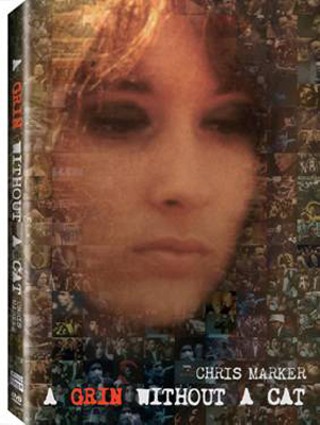A Grin Without a Cat
The title of Chris Marker's radical magnum opus is a reference to Lewis Carroll's Cheshire Cat, which like revolution is seen only in parts, not the whole.
Reviewed by Marjorie Baumgarten, Fri., May 15, 2009

A Grin Without a Cat
Icarus Films, $29.98Who better than the French octogenarian, longtime political observer, and master film essayist Chris Marker to show us the glory and the folly of the international leftist movement of the late 1960s? Finally out on DVD (with an accompanying booklet that includes a new essay by the elusive Marker), the filmmaker's three-hour magnum opus was originally released in France in 1978 as a four-hour film. Since then, Marker has "tinkered" the film, updating and adding new sections after the fall of the Soviet Union, so that Grin is now two 90-minute halves. Part 1 is titled "Fragile Hands" and covers the rise of Fidel Castro and the death of Che Guevara, the worldwide reaction to the American war in Vietnam, and the French student and worker strikes of May 1968. Part 2, "Severed Hands," looks at the Prague Spring, the self-evisceration of the communist and socialist movements in France, and the rise to power and eventual eradication of Chile's Salvador Allende in 1973. Much of the footage was shot by Marker himself while filming other documentaries in Cuba, Russia, the U.S., and elsewhere. The rest is gleaned from newsreel footage shot by now-anonymous camerapersons. In fact, Grin's closing credits state: "The true authors of this film are the countless cameramen, technical operators, witnesses and activists whose work is constantly pitted against that of governments, who would like us to have no memory."
One of Marker's major themes is what he often refers to as the "ingenuity of history." He argues that events in 1967, not the riots of 1968, were the real turning point for the French left. He observes how terrorism has now replaced communism as the West's most demonized enemy. He witnesses stern anti-fascists venerating China's party-line Red Guards and the worldwide idealism of leftist-leaning activists crumble under the pressures of personal realities and outside manipulation. The title, A Grin Without a Cat, is a reference to Lewis Carroll's Cheshire Cat, which, like revolution, is seen only in parts, not the whole. As Marker says of the contributions by this film's unknown image-takers and his own re-edited footage: "You can never tell what the camera might be filming."











